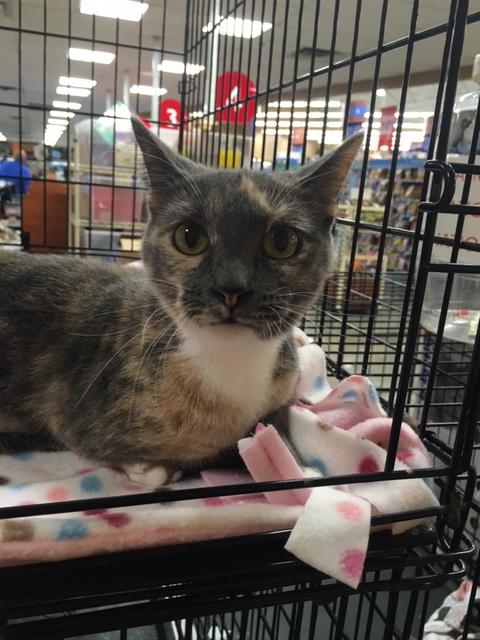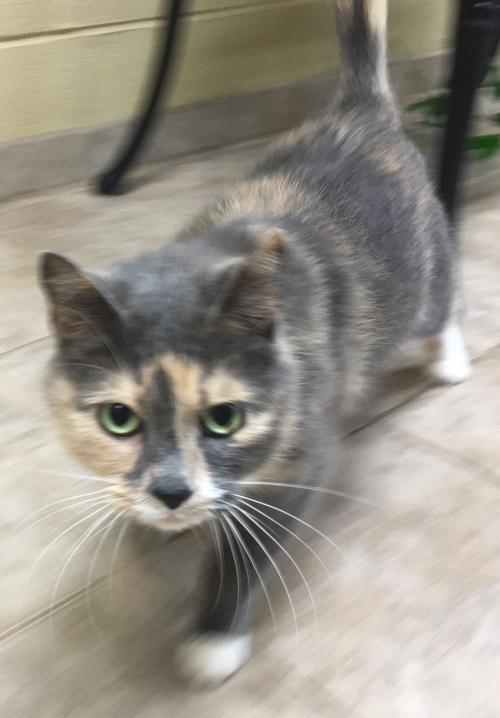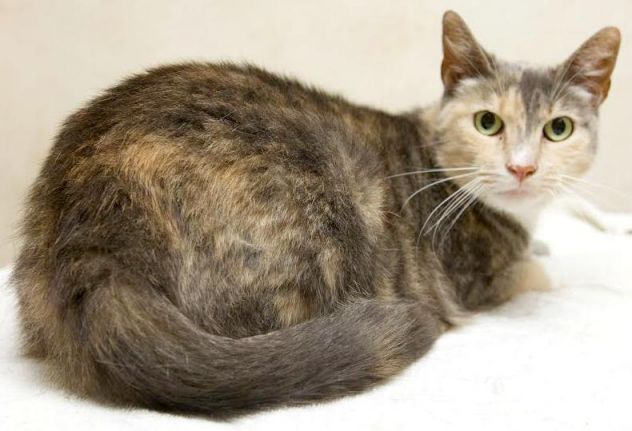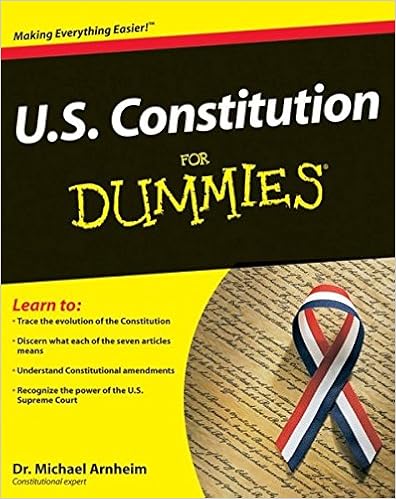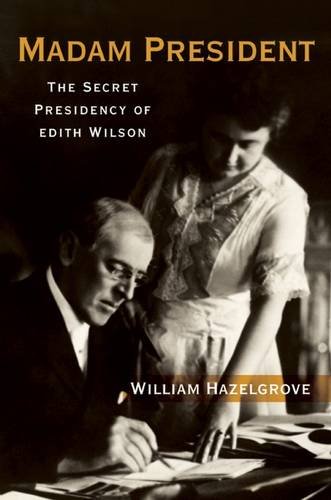Because I promised to post it here (for copyright reasons), with an Amazon link to the founding father of its genre:
1
They did a great job with Dad’s Handscreen this time. With
the latest upgrade you can actually feel the colors, or where the colors would
be, when you zoom to certain degrees of focus: the images feel warmer if
they’re closer to white in black-and-white view, or closer to red in
red-to-violet. “Isn’t it a thing of beauty and a toy forever?” the guy at the
shop wisecracked, showing it off, and it is. I could have spent an hour just looking
around the shop with it.
But of course Dad wanted to hurry up and mount it on to his
Wheels and go out for a spin. More excitement, I suppose. So we all got on our
Wheels and followed him. It was a lovely day; we left all the walls up and
enjoyed the cool air on our faces.
Even passing the energy plant, the air felt good. Nobody
will ever say it smells good, though, no matter how many rows of pine trees and
boxwood bushes and sweet-scented flowers they plant around it. That day the
calendulas were positively shrieking their scent into the air but you still
know, when you’re passing the energy plant, that they’re burning dung and
carrion inside.
“They’re orange,” Mom said, “the calendulas! I can feel the
orange! Can you feel it, Kyle?”
“I can’t even feel the calendulas,” Dad said. “It’s not the
Handscreen. It’s my hands.”
He stopped walking and sat down. The Wheels kept rolling, of
course, on the energy he’d generated. He kicked the brake so hard I could hear
it, even behind Mother’s Wheels, even with our Wheels rolling.
“I’ve got a disability,” he said. “I’ve spent twenty years
working to eradicate disabilities. I’ve got a disability.”
“You’ll have it eradicated in a week,” Sam told him.
Two weeks, tops, I thought. Dad’s good at that sort of
thing.
He cheered up, though, back at the house, looking at
Trevor’s latest picture on the Handscreen. He spent a long time looking at his
grandson’s face, the way blind people look at things, with their hands.
2
When we got home I think Sam expected, just as I did, to
find Trevor in a rotten mood. It really wasn’t fair that the day Mom and Dad
picked up the Handscreen had to coincide with his day at school. We’d thought
about asking whether he could trade school days with some other child, but
that’s always a hassle and they say children need some practice coping with
disappointment.
“When Mom and Dad were your age,” I’d told him, earlier that
morning, “kids had to go to school half
the days in the year.”
“Wotta waste,” he’d said. “What did they do there?”
“Some kind of theory, or experiment—they did all their
lessons at school. The whole class. Together. Lockstep. Like they’d put all the
six-year-olds in one room and tell them to learn to read, all at once, all the
same way. Then the ones who didn’t learn to read that way were told they had
disabilities,” Sam explained.
“Craaazy,” said Trevor, blinking up at Sam, who’s never seen
such long, pale eyelashes on a kid. Trevor got Dad’s albinism but not his
microphthalmia; he sees everything with either or both of his pale blue eyes,
doesn’t even need glasses, any more than Sam did at his age. “How did they ever
learn to read?”
“Some of them never did,” I said.
The Schoolwheels notification peeped and flashed across the
TV screen. Trevor ran out to the porch, jumped on his Wheels, and ran out to
hook on to the Schoolwheels with the other children. I wondered whether all
twenty or thirty of them had thought of other things they’d rather do than go
to school, that day, and whether any of them was not racing his or her own Wheels. They always pump enough energy
into those things to coast their Wheels around the neighborhood for the rest of
the week, little feet flying, bodies leaning over the sides, looking back and
forth, shouting to each other. They always seem to have fun.
“What did you do at school?” I asked.
“Height, weight, finger stick,” he said with more than the
usual disdain. “And I got stunned.”
“Stoned?” Sam
hollered.
“No, stunned,”
Trevor explained. “’Cos Leelawadee O’Halloran said I was looking at her too
long. So she Belted me.”
“Oh, dear love.” I went over and hugged him, which he tolerated.
He fingered his Belt. “Why do boys have to wear Belts
anyway?” I looked at his father.
“Once upon a time,” said Sam, “boys and men didn’t have to
wear Belts. For some of them, probably most of them, that worked just fine.
Others, however, became violent. Some people said it wasn’t fair to girls to
let boys go outside. It wouldn’t have been fair to boys to keep them inside all
the time, either. So we men have agreed to wear Belts.”
“It hurts,” Trevor informed him, “being Belted. I couldn’t
get up off the floor for fifteen minutes.”
“Not as much as it used to hurt in the bad old days if a guy
looked at a girl too long, and her father hit him in the face and knocked his
teeth out,” said Sam.
“What does it hurt to look at a person anyway?” said Trevor.
“It’s disrespectful,” I said. “It hurts the person’s
feelings.”
“It’s because she had these new shoes that play Wossup
Possum videos,” said Trevor. “If I did not want people looking at me I’d get
shoes that didn’t play videos.”
I sat very still and waited for the thoughts of violent acts
toward an eight-year-old child to leave my mind. When they left I said,
“Leelawadee O’Halloran wasn’t showing the best judgment, was she?” I did not
say, “What can you expect from a child whose mother named her after a type font?” I said, “Still, those were her shoes. She wore them just to look at
them, herself, and not to share them with you. You should try not to look at
her any more.”
“So what else did you do at school?” said Sam.
“Just the same sort of thing as last time,” said Trevor. “We
ran. We sang songs. We did gymnastics. We looked at pictures of everybody’s
projects. We ate corn on the cob and bean soup and
the-last-watermelon-this-year, only it wasn’t very good.We started another
batch of paper. I guess this is the paper we made last time,” he said, showing
off a pad of the kind of coarse unbleached paper kids use at school. “And we
did karate, and I flipped Albert Brenner over my shoulder.”
“Albert Brenner?”
I said. Albert Brenner is thirteen.
“Sure,” said Trevor. “In karate size matters less than
paying attention. That’s the point. I guess Brenner was sort of distracted
because of this new pattern for shoes that he’d designed, that he wanted us to
make, ’cos shop comes right after martial arts, and that was what we did in
shop. We all did different versions of the pattern on the computer first, and
then we voted which pattern to put on the shoes.”
The school Trevor attends was named for a wealthy donor, a Colonel
Shoemaker, whose father spelled the name “Schumacher.” I’ve often wondered what
the Colonel might have said if he’d ever imagined that students would actually
make shoes.
Well, now that we have electronic communication systems for
most of the things kids study at school and most of the jobs adults do, some
people felt that students and teachers ought to see each other’s faces some times. Not too often, of course;
turns out that most of the differences that made it hard for people to get
along, in the past, were aggravated when people had to do everything in the
same room, and smoothed right out when people were working on their own devices
in their own homes. So we voted, and all the children at Shoemaker Elementary
School go to school one day every two weeks. That’s enough for children like
Trevor, or like his buddy, Marvin Kwok; I think any school is probably more
than brats like Leelawadee O’Halloran deserve. Anyway, they go to school and do
the things children actually did in groups in the olden days: sports, music,
shop. The older ones, who’ve learned a bit about how not to waste food at home,
cook the meals. It’s meant to be more like a social occasion, a party, even,
rather than military service, or prison, or whatever school as we knew it was
meant to be like.
3
After dinner Trevor read to us from one of his new books,
after his fashion.
“‘Kyle McClintock, a Man Who Defied Disability.’ Like that’s
Grandpa,” he said, as if we didn’t know. “Cool! ‘Kyle McClintock was born with
only one eye. In those days, all the children the same age in a neighborhood
had to go to school on the same day. The ones who failed to learn things as
quickly as others did were considered disabled.’ Like you said, Dad. Now I’ll
let the Tablet read itself, okay?” He touched a switch.
“Doctors warned Kyle that his one eye was likely to wear out
fast,” the mechanical voice read. “In those days most children were taught to
read only with their eyes and talk only with their mouths. Although some
devices had been designed to help people read and talk with their hands, many
of those people were still able to communicate easily only with one another.
Computers had flat screens. Kyle bought a very expensive device that translated
the letters on a flat screen into shapes that he could read with his hand. The
shapes formed only letters in a strange, oldfashioned code. Because he could
see the letters other people were reading with their eyes, as well as the
images, Kyle McClintock knew how much information he would be unable to read
with his hands unless he could invent a new kind of computer screen.”
It’s always a hoot to read what some writer has made out of
something you remember. Yes, that was why Dad invented the first Handscreen.
More or less. They left out the bits about my grandfather having grown up in an
institution because my great-grandmother was blind, and about employers not
even considering Dad for jobs, when he was younger, because his artificial eye
looked so real that they thought its not actually focussing and seeing things
made Dad’s face look strange or untrustworthy. They never do mention that Dad
was forty years old before I was born.
By the time I came along, things were a bit different. It
was always hard for me to imagine a time when people who had just a little
sight, just a little hearing, could get into ordinary schools as long as they
“passed as normal” but might be expelled if they admitted they had
“disabilities.” In my world disabled students had power; they could demand all
kinds of expensive adaptive devices. A real disability was still a real headache,
though. Blind people had a way of reading with their hands, and deaf people had
a way of talking with their hands—and those were two completely different
languages.
Hence the Handscreens.
I remember the first few computer programs that made voice
recognition a standard feature. “Epic fails” was a phrase people used. One of
the better designed voice-based programs stored everything in the cloud, so
even blind people didn’t trust it. Screens were still hard and flat; sound was
either turned on or turned off, and most people who could see anything, at all,
turned off the sound permanently.
Well, humanity had some evolving to do, that’s all I can
say. I mean, I’m glad Trevor can’t remember what it was like. People had become
accustomed to rolling around in massive gas-burning cars. Naturally no blind
person could drive. So people actually wanted to go through the process of
building self-driving cars—what a nightmare!—before they thought about building
self-driving Wheels.
No device is perfect. Wheels have been known to fail to
follow the courses their owners set for them. Most people don’t want every trip
they take in a Wheel to be broadcast around the world in the cloud. However,
Wheels are light enough and move slowly enough that, if they do crash, nobody’s
likely to be killed. If children really want to see for themselves what it’s
like ramming a Wheel into a brick wall, they may have a lot of extra chores to
do to pay for repairs, but what it’s like
is: your Wheel stops.
And a lot of people thought the only “right” way to make
love was to make babies; Grandmother gave birth to five children. Now, of
course, when you go to the hospital to have a baby, the Nip and the Tuck are
part of the package. People have just had to learn that, if nine out of ten
babies are going to live for seventy-five years or longer, there’s no need to
keep on making babies just in case something happens to the first one. It’s not
really an old saying, although the kids think it is: “If God wanted you to have
two children, you would’ve given birth to twins.”
Trevor does know that he had what were called aunts and
uncles. One of the aunts is still living. That detail wouldn’t be mentioned in
a story written for children. It’s too personal; it’s nobody’s business that my
grandparents, crowded though the world was becoming, produced five children.
I think our evolution, as a species, actually benefitted from the plague…
“Then Kyle’s friend and working partner, Rayvon Mathis, died
from the plague,” the mechanical voice went on. “At first nobody understood why
so many people were dying so suddenly. The human population was more than three
times what it is now. Scientists working to solve the problem of how to feed so
many humans had experimented with changing the genes of living creatures. When
they modified the genes of hogs to make them grow bigger and faster, a virus,
formerly harmless to humans, had mutated to adapt to the new population of
hogs. The mutation made the virus fatal to humans who lived in crowded
conditions. In cities like New York, Rio de Janeiro, and Hong Kong, fewer than
one tenth of the population survived.”
Even cities like Baltimore, where we live, lost appalling
numbers of people. I remember…
“Want me to skip, Mom?” Trevor asked. He touched the switch.
“Now I’m reading to myself, okay?”
“It’s okay,” I assured him. “I can guess what it says,
anyway. People who lived in less crowded conditions and kept more to themselves
were the ones who survived the plague. After the plague had run its course,
people voted to keep the human population nice and safe and sparse. Only one
family lives on one hectare of land. A family might mean one person, or two
people, or two people with a parent or a child.”
“That’s not what it says.” Trevor punched my arm. “There’s
some more about how Grandpa paid for Aunt Bernice’s education, and then…
‘Although many people who had been considered disabled died during the plague,
many who had been considered able-bodied were considered disabled as a result
of the fever. Kyle himself was now considered blind. His project attracted
other engineers who were now considered disabled, such as Charles Rolland and
Wayne Gilmore, both deaf, Dave Stephens, a wheelchair user, and Zahavith
Rubenstein, who had been diagnosed as autistic’…Now I want the Tablet to read…”
The Tablet went on with the story of the early Handscreens.
It bogged down when it came to the contributions of Claudia—“Seidenspinner!
Stupid computer,” Trevor said, taking over the narrative. Claudia’s voice is the
sound the Tablet synthesizes; it pronounces some words with her accent. She’s a
very shy person. I suspect she programmed the Tablet not to recognize her name.
“Handscreens display images of what they scan in a
three-dimensional form, allowing users to see shapes with their hands.” The writer
hadn’t even heard about the addition of color. “They can also read written
words aloud, and translate hand-signed words into written words.”
4
“Look, Mom, a toothbrush!” Trevor tugged on my hand. “A
green one, in the gutter.”
“Look with your eyes not your hands,” I said automatically.
We don’t often go to the library. In the olden days, I
understand, librarians had to be in the library every day. Now that job, like
most jobs, is basically done from home; live-chat screens blur the background
while allowing people to see the body language, so I often talk to lonely
patrons live from the field where Sam and I raise our vegetables. I can even
talk to them live from the shower.
That particular day, I was walking at Trevor’s pace, not
even using our Wheels, because it was such a lovely day and in order to create
a delay. Someone had tried to remove a real book from the real library. When
the Tattletape peeped, my Handscreen alerted me; I set it in live-chat mode, so
my face popped up on the screen that swung out from the scannergate as it
locked. I said, “Please re-scan the things you’re carrying,” and the person
jumped over the scannergate and ran, not apparently aware that the Tattletape
would continue peeping, louder and louder, from the book itself until it was
properly checked out or properly reshelved. In this kind of situation it’s nice
to give the police time to investigate the person’s background, to know what to
brace for.
As we walked, the message from the police dispatcher popped
up on the screen: Dianne Farbey, age 74, had a police record consisting of two
inappropriate emergency calls, within the past three years, both resolved
without charges, some minor traffic violations from the years before Wheels,
and “trespassing” during a protest in the 1990s. Her official ID photo showed
up, as did the snapshot where she was clutching two books and sputtering with
indignation.
“Is that the bad
person?” Trevor asked.
“Well, I don’t think she seems like such a bad person, on the whole,” I said,
dictating the message to the arresting officer, “but I would like to talk to
her family along with Ms. Farbey, if that can be arranged.”
It could, of course. Their Wheels reached the library just
ahead of us, which was as I’d hoped. When Trevor and I walked in, a woman,
obviously her daughter, was holding Ms. Farbey’s hand and trying to reprove a
child, smaller than Trevor, who was trying to climb over the scannergate.
I couldn’t resist flicking on live-chat mode and saying
sternly, “Please don’t climb on me!”
It worked; the child squeaked and scampered back to Mama.
After the introductions Dianne Farbey made things easy for
everyone. “No one was there to check out the books, so I just took them with
me, as I’m sure everyone else does! I am not a thief. I had my library card!”
“I’m so sorry,” said her daughter to me. “Mother,” she said
to Dianne Farbey, “you run your card through the scanner, now, and then the
books. Remember?”
“The what?” said
Dianne Farbey. “I had my library card
right on top of my book. I always do.”
“I’m very sorry,” I said, and I was. Now we’d spend another
year or two debating whether we needed a holographic projection of a librarian
standing behind the scanner. I showed her, as her daughter had obviously showed
her several times, how the scanner works, and suggested that her daughter
accompany her in the library, henceforward.
The officer wasn’t pleased to have come out and not been
able to arrest anybody; they don’t have quotas any more, but he was obviously
one of the old breed, more interested in some sort of video game he’d had going
in his Wheel than in keeping the peace. I’m not too pleased that the Baltimore
Police Department still finds jobs for that kind, myself.
“Did you ever see a real
bad person?” Trevor piped up.
I blushed, but Officer Grouchy’s voice mellowed. “I sure
did, buddy. Down Douglass Street, just Saturday night, we had a blood thief.
You know what a blood thief is?”
Trevor knew. “A bad person who cuts somebody to get some
blood to fake a finger stick.”
“That’s right, that’s what they do. And when we find them,
we Belt’em so hard they jump up in the air before they fall down!”
Some humans have more evolving to do than others. Anyway, if
it helped Grouchy feel better about his interrupted game, it couldn’t be all
bad.
“I’m not a bad person,” Dianne Farbey declared.
“Of course you’re not,” I said. “I look forward to serving youall again, the next time.” Dianne
Farbey remembered the difference between “you” and “youall,” I’m sure, but she
let it go.
On the way back Trevor showed me a dragonfly, a
vermilion-red one, and a dogwood tree, a red-violet one, and a garden bordered
with early asters, and a bird.
“A robin, a young one, I think a male. But something’s wrong
with it; it’s trying to fly and it can’t. It’s old enough to know how to fly.”
“It looks as if it’s eaten a lot of pokeberries,” I said.
Pokeberry pulp is messy and tasteless; it’s the seeds that damage the brain,
even of a bird.
“Is that cat going to eat it?” my son asked next.
“Not while we’re on the street,” I promised. I could not,
however, raise a signal from the cat’s collar.
“It hasn’t got a collar,” Trevor explained.
“What a pity.” The collars they make for cats these days are
a treat to watch in action, putting out holographic displays to distract cats
from doing things they shouldn’t do and lead them back to where they have some
right to be. Still, some cats pull off their collars. Maybe fleas get under
them.
“It hasn’t had a collar for a long time,” Trevor said. “See,
the fur on its neck…”
“It must be lost,” I said. “Here, kitty, kitty.” I leaned
over and wiggled my fingers to catch its attention. It was lost all right; it
followed us home.
Before the plague people used to argue about things like
whether animals had a right to roam outdoors. Nobody had wasted the city council’s
time with that sort of silly argument for years. Nevertheless, two days after
we published the news that we’d found the homeless tame cat, DaVernyn
O’Halloran published a proposal to round up and sterilize homeless cats in the
city. I couldn’t believe he was digging up the same old arguments from the
olden days—in one paragraph the poor homeless cats couldn’t survive, in the
next paragraph they were going to multiply like flies and wipe out entire bird
species, as if there were birds in North America that hadn’t evolved the
ability to coexist with cats for thousands of years. Really it was the kind of
thing you’d expect from a man whose daughter is named after a type font, wears
video-screen shoes to school, and Belts little boys for looking at her videos.
Let’s just say that that proposal never came up for
discussion in the council.
5
Since there’s no
penalty for having been the owners of a cat that decides to go feral on you,
the way the majority of cats did during the plague years, our cat’s rightful heirs
turned up later that week.
It was the usual story. Frisby was her mother’s cat, not
theirs. He didn’t like their cat, also male, and therefore wanted nothing to do
with them, so when the old lady died Frisby went missing. The collar was found,
beeping wearily, its battery wearing down, early the next morning. Frisby was
nowhere nearby. Cats are safer outdoors than they used to be, since Wheels stop
short of any moving thing. Still, Frisby’s heirs had intended to continue
feeding him, but they’d never seen him.
We hadn’t had a cat. We had had crickets. So there was no
trouble about Frisby moving in with us, and of course the nights were quieter
afterward, and I’m sure the rugs are safer.
“I am delighted,” Trevor said solemnly, “that someone in
this family is smaller than I am.”
He was a mature cat, maybe all of ten years old, the vet
said. He was a blotched tabby, not a mackerel tabby, Trevor said.
I’m not the one paying for a color-enhanced Handscreen. I
inherited Dad’s microphthalmia, on both sides, as daughters of men who have it
on one side usually do. My eyes, both fully artificial, have never seen colors.
People don’t miss what they’ve never had. To me the screen that heats up to
indicate white or a pale color felt confusing, disorienting. It would take me a
long time to get used to that kind of Handscreen.
And I’ll admit I didn’t really look forward to getting used
to having an animal about the house, either. Sighted people think of cats as
creatures that purr and catch mice. Blind people think of cats as creatures
that dart out under our feet, and if Frisby had tried that I was prepared to
kick him so hard he’d fly up in the air before he fell down, whether he could
land on his feet or not. But he never was that sort of cat.
“Do you think of yourself as blind?” Sam asked, one night
after we were sure Trevor was asleep, when I’d mentioned the difference it
makes in people’s attitude toward living with cats.
“Not often,” I said. “Dad would be disappointed…but
sometimes I do. I am blind. Totally
blind. What I was born with in the way of eyes never saw any difference between
midnight and midday. I’ve only ever seen with my hands. It makes a difference
when a quiet animal spends its life on a level my hands don’t feel. We never
had a cat in the house.”
My parents wanted my childhood to be like Bernice Mathis’s
childhood in every way. Dad wanted that so much that he seemed to deny the main
differences between Bernice and me. I wouldn’t have wanted Bernice not to have had her eyes, any more than I would have
wanted not to have had a father. If he’d thought about it I’m sure Dad would
have understood that; he was, after all, the one who reminded me that Bernice
had already had her turn to be the age I was, and one day it’d be my turn to be
the age Bernice was. But he didn’t want things like beautiful strong eyes, or
loving full-time fathers, to make more difference than age did. I think.
“People still tend to become more farsighted with age,” Sam
said, later that night. “I wonder whether Frisby’s first human had trouble
seeing him under her feet, too.”
Frisby said nothing.
I warned my parents that Frisby was living with us, when
they came to visit. He stayed out of the room, though; apparently he was out in
the garden with Trevor.
“DaVernyn O’Halloran,” Mom said. “Wasn’t he one of those
children…they had Big Brothers and Big Sisters, and Bernice was a Big Sister?”
“The problem child,” Dad said. “The one who confessed that
he’d made up those awful stories about Bernice because he was jealous that she
was his sister’s Big Sister and not his.”
While dinner was in the oven we watched television. The
television’s not hooked into the solar panels like the things we use every day.
One person can generate enough energy to run it, but neither of my parents
cared to sit around watching me pedal, nor did I care to watch them; I got out
the backups, and we charged a few extra batteries while we watched the city
council Preview. Anybody can go to the meetings—that’s encouraged here in
Baltimore, almost as much by the council members themselves as by the
after-business parties—but, in order to speak or vote, you have to have watched
the Preview. Most times, after watching the Preview, you decide to let at least
one of the council members speak for you. You can pre-vote for that.
This time looked like most times, at first. There was some
discussion of changing the commuter train schedule between Washington and New
York. None of us rides the train often, so we wouldn’t be voting on that.
Someone had reported damaged pavement out toward Dundalk. Nobody expected
fixing that to exceed the city’s street budget, so there wouldn’t be much
discussion about that. It looked as if those who attended the meeting wouldn’t
have long to wait for the party to begin.
Then our council member, Helen Hsiu, said: “I’m being
challenged for my seat on this council by my constituent, DaVernyn O’Halloran.
He’ll be presenting his campaign platform at the meeting. I find it rather
off-putting…for one thing it’s very long.”
“We’ll be going to the meeting after all,” Dad reported,
just as Trevor, Sam, and Frisby came in.
“Have you met our cat Frisby?” Trevor said. Frisby let
Trevor pick him up and set him on the couch beside Mom. He sniffed at each of
my parents’ hands.
“I used to like dogs myself,” Dad said, “when my eye still
worked.”
“Oh Grandpa,” Trevor said, “can you see things on your Handscreen now?”
I hadn’t wanted to ask, and Dad hadn’t complained, but he
said, “Much better, thanks. I think it was just a matter of getting accustomed
to it but my doctor’s changed my supplements, temporarily, just to be sure.
Trevor, do you think you can sit through a really long council meeting?”
“’Course I can,” Trevor said. “I can read.”
6
His eyes were still only six years old, of course. I checked
to make sure his Tablet was set for large typefonts and loaded with fully
illustrated books, just to be sure. I was tempted to check what kind of reading
material Marvin had brought, when they sat down side by side, but restrained
myself from being so rude to the Kwoks.
Anyway, they behaved themselves, and Helen wasn’t
exaggerating when she’d said that O’Halloran’s “platform” was long. Twenty-five different things, the
man wanted. The alarming thing was that he seemed to think other people would
want any of them. He wanted all kinds of animals, not only cats, rounded up and
kept off the streets—claimed it was too much trouble to run his Wheel through
the cleaner before bringing it inside. He wanted a ban on hedges, because the
Douglass Street blood thief had been hiding in a hedge. He wanted the city to
put everyone back on a central electrical power grid, the way they were in the
olden days, when if a storm knocked out one panel—well, the equivalent of one
panel, whatever that would’ve been—it took out the whole neighborhood’s. He
wanted one central instruction program for all the children in all the schools.
I think, although my brain was reeling, he’d even said something about a
central authority to approve of all publications, before he sat down.
“I’m speechless,” Dad muttered, but when the chair called
for comments Dad stood up.
“Mr. O’Halloran may not have been fully aware of it at the
time, but when he was born,” Dad said, “the city of Baltimore had many of these
things that Mr. O’Halloran thinks he wants. I would never have expected that a
younger person would want to go back to those times. My generation worked hard
to move society past these bad ideas. But it’s not just the intergenerational
insult that concerns me here. Neighbors, most of Mr. O’Halloran’s proposals
have one thing in common. They are not grounded in respect for each
individual’s freedom of choice. They are as rude, as disrespectful, as
extending the traditional closing of meetings from ‘God save us all’ into a
formal prayer; a prayer within one religious tradition, say, that petitions
specifically for followers of other traditions to convert to the speaker’s own
tradition.”
Helen Hsiu started shouting
“Hear! Hear!” Of course we all joined in, afterward; even the non-voting
section.
“Mr. O’Halloran,” said the chair, after several minutes of
“Hear! Hear!”, “I think you’ve heard that?”
O’Halloran looked at the floor like a sulky child.
“Is there any other business?” There wasn’t. The chair
rapped his gavel. “God save us all. The meeting is adjourned. Let the party
begin.”
Weather not only permitted but encouraged the party to begin
out in the street. (We still have wide, smooth streets from the days of huge,
heavy vehicles.) As we walked out people started singing:
All Maryland is of one
mind, oh Maryland, my Maryland:
Here peace and freedom
all may find, in Maryland, my Maryland.
Toward true progress
we’re inclined, and meddling will no longer bind
The liberty of
humankind, in Maryland, my Maryland.
I suppose O’Halloran was born right around the time our
state voted to add a verse people could actually sing, without feeling queasy,
to the state song. Helen Hsiu walked up beside us. “It’s a disease, of course,”
she said.
“Yes.” Mom knew what she meant. “Control mania.”
“The hard part is persuading people like that to get help in
time,” she said. “It’s too bad that he has a child.”
I was scanning the crowd for Trevor; since he hadn’t led
Marvin straight to us I guessed he must have followed Marvin to the Kwoks,
which it turned out that he had. With them was a girl, bigger than they were,
with a lot of very long thin braids.
“Mother, Dad, Grandma, Grandpa,” Trevor recited proudly,
“this is Leelawadee O’Halloran from school. Lee, my parents are Mr. and Mrs.
Aguilera, and my grandparents are Mr. and Mrs. McClintock.”
We all greeted her warmly, though I’ll admit that
uncharitable thoughts came to my mind. I don’t call myself “Mrs. Aguilera,” and
hardly recognize that name as meaning me—though it’s hardly likely to mean
Sam’s mother, a casualty of the plague, and I do recognize “the Aguileras” as
including me—but I didn’t feel like telling the O’Halloran child to call me
“Kylene McClintock,” either. I noticed that Mom didn’t mention her name being
Michi Hayazawa, either.
“Mr. and Mrs. Aguilera,” recited Leelawadee O’Halloran, “I’m
sorry I Belted Trevor and Marvin at school that day, and I’d like to invite
them to watch the whole Wossup Possum
video on my Tablet. It was only fragments on those shoes, anyway.”
Needless to say we all watched the kids closely—the Kwoks,
too—and what d’you think, they behaved perfectly. They watched the cartoon, they
sang along when the adults sang, they danced when other people danced. Anybody
would have thought Leelawadee O’Halloran was as nice a child as our two.
7
The funny thing, I mean the peculiar thing, was that she
seemed to like our two.
“I wonder why?” I asked Trevor, after having seen Leelawadee
O’Halloran five times in the next three weeks or so. “Don’t girls her own age
play with her?”
“I don’t think there are any girls her age at school with us
this year,” he said. “I’m not sure. There are some girls who come on the other
Schoolwheels from other neighborhoods; I think they’re more like my age. Then
there are three girls who are ten years old. They don’t like anyone who’s
younger.”
I still thought it was peculiar for an eight-year-old child
to want to play with other children as often as that one seemed to do. I
wondered whether her father’s mental condition had anything to do with that.
Dad reported that he was getting better use from his
colorized Handscreen by beginning with the unenhanced view, to which he was
accustomed, and then checking for light-and-dark and then for color.
“Will there ever be a world without disabilities?” he said
rhetorically. “As long as people get older, they’ll have to deal with
increasing wear and tear on their faculties, year by year.”
“A world where people accept some disabilities, as they get older, is better than that other way
some people wanted to build a world without disabilities,” Mom said.
It’s still mostly a Jewish tradition, but the library does
observe a day of remembrance for that,
every year; for one week the history material is on display, and some years
people bring in pictures of the people who were murdered, some for having
disabilities.
“And some things will always be hard to spot, at first,” I
said, thinking of DaVernyn O’Halloran.
“Does that child…” Mom guessed what I was thinking.
“At least she seems to have a healthy taste for vegetables,
as a snack,” I said as lightly as possible. “Once or twice a week she’s come
out to buy some.”
“And lingered?”
“And lingered. At least there’ve been no more violent
confrontations.”
“More than one child even living in a house used to be considered normal,” Mother said. “I
don’t think it necessarily did all of them all that much harm. I think you and
Bernice Mathis were actually good for each other.”
“I don’t think Marvin’s bad for Trevor at all,” I said, “but
who knows about the O’Halloran child.”
What she’d told the boys was that her mother was ill.
“There’ll never be a world without colds,” Dad said.
“There’ll never be a cure for colds, because the cold is the cure.”
8
I found out a good deal more about the O’Halloran
child, not too long after that.
We were all, Sam and Trevor and I, and even Frisby, sailing
down the bay to a farmers’ market to unload some vegetables. It was quiet, not
much wind, and we weren’t talking or singing, and we heard something that must
have sounded just a bit different from the usual seagull noise; different
enough that we all concentrated on
listening for it, and sure enough, it was a child. So we steered a little
closer—and it was Leelawadee’s voice.
Then it stopped. None of us liked the sound of the silence
after that child’s cry, “No, don’t,” had stopped.
Sam anchored the boat, quietly. We slipped over the side,
quietly, carrying shoes and Handscreen around our necks, and waded onto the
shore as quietly as possible. Trevor, as usual, held my hand. Sam didn’t; we
lost sight of him. Frisby, having decided at the last moment to come ashore on
Sam’s shoulder, bounded ahead of Trevor. I suppose, without meaning to, we let
the cat guide us.
But we were the first to hear Leelawadee say, “Mrs.
Aguilera’s out there on the bay. See her boat?” She sniffled.
“Wouldn’t matter if Mrs. Aguilera were right here,”
O’Halloran said, as we tiptoed up on them. “Can’t you tell by looking at her?
She’s blind.”
They were in some scrub bushes near the water. Sam, we found
out later, had rushed further in to check a boathouse where he thought someone
who was ashamed of what he intended to do might have gone.
“See the Aguileras’ cat,” said Leelawadee O’Halloran.
“See the Aguileras right here,” I said grimly, focussing the
Handscreen on her. “Hello, neighbor
O’Halloran. Is everything all right?”
“Wossat on your face?” Trevor asked her. “It’s on your
shirt, too. Have you got a cold?”
“I thought it sounded as if something were wrong,” I said,
temporizing, thinking of something to say that wouldn’t sound too threatening.
I meant to let him be dealt with
properly by the authorities. I lied, “There’s a different kind of infection
going around town. Not a cold. Treatable. Would you like to go in with us for a
finger stick? You’d better come too, DaVernyn, since you’ve been exposed.”
“Is it a bad infection?” Trevor asked.
“It can get bad if it’s not treated,” I said. “If you see
anything on her skin or clothes, don’t get close to her. Let the doctor…”
“Get out of here,” O’Halloran shouted at him.
He ran, and I was glad, because you can’t Belt one male and
not another one standing within range. As a blind woman I have that switch on
my Handscreen, too, as well as on my wrist watch.
“Don’t touch her,” I babbled, knowing exactly what he was
trying to wipe off his daughter’s clothes and skin. Of course he ignored me. Of
course I Belted him.
So did Leelawadee. Apparently his Belt registered both
charges in just close enough succession that he really did jerk up into the
air, a few inches, before he came down.
The switch that fires the electric current through the Belt
also activates a siren. People are supposed to come to the rescue. Police come,
if you’re close enough that they pick up the signal—but we don’t have as many
of them as we once did, in Baltimore, and they don’t spend much time along the
bay. In our case the person who came to the rescue was Sam.
“Can’t you shut those things off,” he screamed.
“They go for ten minutes,” Leelawadee howled back. “Even the
police can’t shut them off.”
We put our fingers in our ears and waited, since it would be
illegal as well as hateful to sail away before the police came. Nobody tried to
find out where Frisby had gone, either; obviously as far from the horrible
noise as he could get. I wondered whether the noise was meant to help
incapacitate the victim.
When the sirens shut themselves off at last Sam asked
Leelawadee O’Halloran, “Did someone else make that mess on your shirt?”
She nodded. “My father did. He’s the one who’s sick. Not
me.”
“Has he done that before?” I asked.
She nodded again.
“Did he threaten to do something else if you Belted him?”
Sam asked.
She nodded again. “He said he’d kill my dog. He’s hurt my
dog, anyway. He’s probably,” she said, cold-blooded as children can be, “going
to hurt Trevor.”
Trevor had sensibly gone back to the boat; but he wasn’t
quite big enough to lift the anchor. O’Halloran was starting to pull himself
together; he’d slithered several yards down toward the water, and seemed to be
trying to get to the boat.
“He’s not going to hurt Trevor,” Sam said. “Why don’t you go
and join Trevor in the boat now.”
“May I,” she said, sweet as children can be, “look for your
cat first?”
“I don’t expect the cat will abandon Trevor for very long,”
I said. “I think you’re safer in the boat.”
Both of us were still hoping to hear a police motorbike,
being so far from a road on which a Wheel would roll. Neither of us heard one.
I started, not running or dancing, exactly, but walking briskly around in
circles, the Text Message Dance, trying to find a signal to send a message: Stunned pedophile on bay shore, help please.
Sam walked down toward O’Halloran. “You are not going to hurt Trevor. You are not
going to have a chance. Don’t even think about it. Just sit down.”
O’Halloran turned around and told him, in the foulest terms
I suppose he could think of, exactly how he was going to hurt Sam, and then me
(“your blind very-rude-word”), and
then Trevor, and Leelawadee, and her dog, and our cat, and if any police did
show up…
So there was nothing else I could have done. “Sam! Leave
him! Get clear!” I sidestepped so as not to point it in Trevor’s direction,
either, and let O’Halloran have the charge from the watch. And then we all put
our fingers in our ears and sat down again, except for O’Halloran, who was knee-deep
in the Bay when he fell.
That time the police picked up the signal.
Sam asked Officer Brisk whether O’Halloran was still alive,
not that it makes a great deal of difference to a convicted pedophile. Officer
Brisk thought he might be alive; but he wasn’t. DaVernyn O’Halloran drowned in
three feet of water.
9
They say it’s boys who never quite get over losing their
fathers; girls, like Bernice Mathis, can survive without fathers if they have
the other things they need. Lee’s mother, Olivia Brown, wasn’t good for
much—her sickness turned out to be the kind that comes in bottles—but Lee
wanted to stay with her, and we thought that would be the best way, having
their own home while being part of our family; it had worked for Bernice.
I’ve become fond of Lee, over time. Of course you only ever
have one child, unless you have some sort of multiple birth, and you never love
another child the same way you love your own. Then again, don’t most adults
love most children, if we get to know them? Anyway Lee has her own mother.
After we’d all searched and called for more than two hours,
we found Frisby, and he let Trevor bring him back home.
I felt bad about O’Halloran, of course, but everyone agreed
that I’d had no choice.
“I suppose,” Dad said, “there’s only one way to eradicate some kinds of disabilities.”
